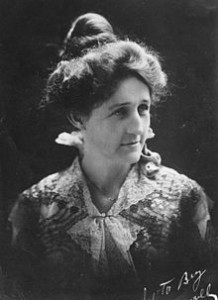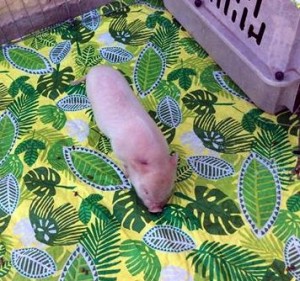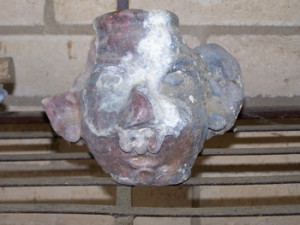Exactly a hundred years ago, an enterprising gentleman named James Edward Ferguson took office as the Governor of Texas. He was of a generation born long enough after the conclusion of the Civil War that hardships associated with that war had faded somewhat. The half-century long conflict with raiding Comanche and Kiowa war-bands was brought to a conclusion around the time of his birth, but he was still young enough to have racketed around the Wild West as it existed for the remainder of the century, variously employed in a mine, a factory making barbed wire, a wheat farm and a vineyard. Having gotten all that out of his system, he returned to Bell County, Texas, studied law, was admitted to the bar, and married the daughter of a neighbor, Miriam Amanda Wallace. Miriam Amanda was then almost 25, and had been to college. James Ferguson and his wife settled down to a life of quiet prosperity in Belton, Texas. There he founded a bank and dabbled in politics as a campaign manager, before running for and winning the office of governor in 1914 – as a Democrat, which was expected at the time and in that place – and as an anti-prohibitionist, which perhaps was not. Two years later, having not done anything in office which could be held against him, James Ferguson was re-elected … and almost immediately walked into a buzz-saw. A quarrel over appropriations for the University of Texas system and a political rival for the office of governor – ensconced among the facility as the newly-anointed head of a newly-established school of journalism – eventually blew up into such a huge ruckus that James Ferguson was impeached, with the result that he could not hold public office in Texas again – at least not under his own name.
With the hindsight of extreme cynicism regarding the press when dealing in personalities and matters political, one can wonder how much of the ruckus concerned his actual conduct in office, and how much was created by the state press. His erstwhile rival owned one, had connections with others, and had the backing of the intellectual elite of Texas as it was then. He was also generally anti-Prohibition, which lead to dark whispers that he was in the pockets of the brewing industry. Rather than continue being politically active as a ‘behind the scenes fixer’ James Edward Ferguson came up with a brilliant solution: put his wife out there as a gubernatorial candidate in 1924. Yes, Miriam Amanda Wallace Ferguson, likely rather brainy (being that she had married rather later than one might have expected of a woman of that time, and indulged in education well beyond high school) but in personality rather retiring, hit the campaign hustings with her loyal hubby ever at her side. Her campaign slogan was “Two Governors for the Price of One,” or alternately “Me for Ma, and I ain’t got a durn thing against Pa,” Her husband put on the folksy touch of calling her “Ma” and himself “Pa” – as he was ever a strong advocate of rural farmers and would have their undying support for most of the rest of their joint careers. Miriam Ferguson asked for the votes – and of women especially – as a reaffirmation and support of her husband.
And she was elected, likely to the horror and consternation of her husband’s political foes. She was the first elected female governor of Texas and the second elected female governor in the nation – although there is not much contention that “Pa” Ferguson was the real power behind the chair, as it were. She ran for office again in 1932 – winning a second term. Although she and “Pa” campaigned as folksy, down-to-earth populists, they were in no sense ‘rubes’; teetotalers both, they fiercely opposed Prohibition. “Ma” Ferguson was also generous with the pardoning authority of her office; over the course of two terms, she exercised it some 4,000 times – mostly, it should be noted – for violating various prohibition laws. Rumors did persist, then and rewards that many such pardons were in exchange for cash paid to the governor’s husband. One rather amusing but apocryphal tale had it that a man began walking through a door at the same time as Mrs. Ferguson: “Oh, pardon me,” he said, as the manners of the time required, and Mrs. Ferguson answered, “Sure, come on in – it’ll only take a minute or two to do the paper-work.” She has also (along with a great many other personalities held by their so-called betters to be ignorant and backward) credited with the remark to the effect that if English was good enough for Jesus Christ it ought to be good enough for the children of Texas.
And the Ferguson team also came out against the Klu Klux Klan, then very much a powerful force in the rural South and Midwest. In Texas, the Klan’s activities were not so much racism, as it was nativist and wedded to a certain kind of moral authoritarianism, prone to punishing people suspected of adultery, gambling, sexual transgressions, bootlegging and speaking German in public. This tended to excite disapproval among thoughtful citizens who professed to uphold the rule of law. While the Klan could and did control certain elections, especially at the local level – there were organizations just as vehemently opposed to their activities; various influential urban newspapers such as the Houston Chronicle, the Chambers of Commerce, the Masons, the State Bar Association, and a number of citizen’s organizations. As part of her first campaign, Ma Ferguson promised an anti-mask law, targeting the Klan, making it illegal for any so-called secret society to allow members to appear masked or disguised in public. KKK membership in Texas dropped precipitously and continued to drop; whether Team Ferguson’s activities had anything to do with it, or they were shrewd and farsighted enough to see the trend and get aboard is a matter of contention for specialist historians. Still – for a couple who were and probably are still dismissed as a pair of rubes, they chose to oppose one of the stupidest but most well-meant popular social efforts of the early 20th century, and one of stupidest and most brutal organizations as well.










Recent Comments